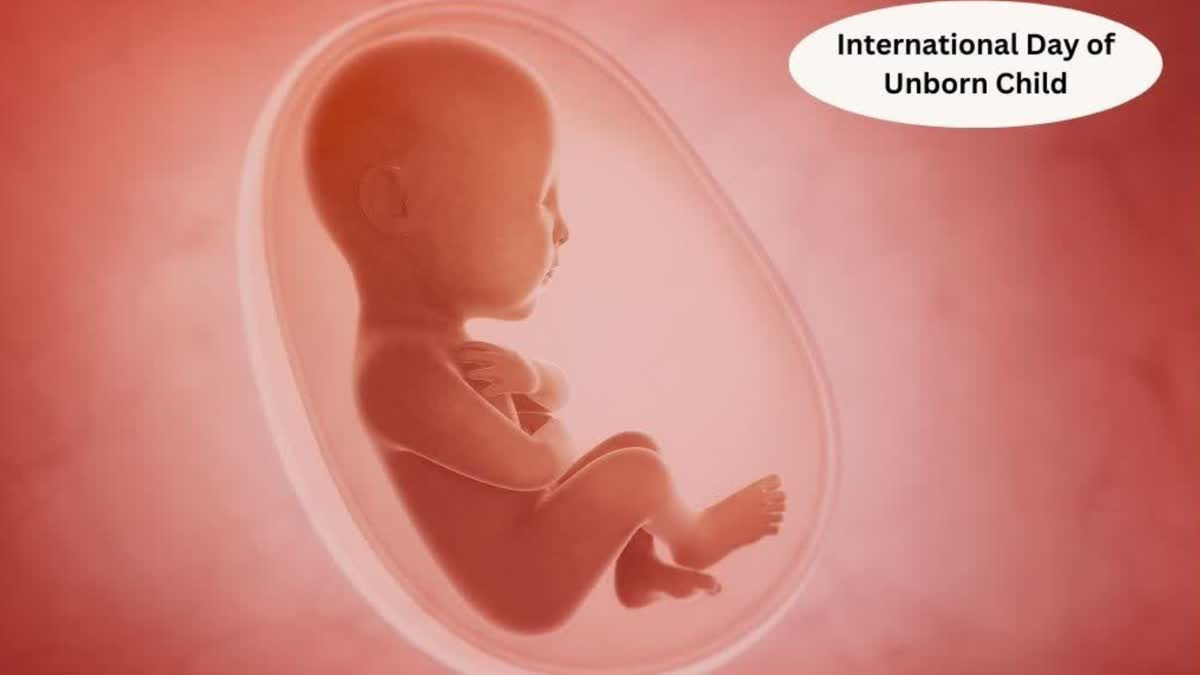International Unborn Child Day is celebrated annually on March 25 across the world. This day emphasizes that every child is a precious gift and symbolizes hope and new beginnings. The observance aims to raise awareness about the rights and protection of unborn children.
History and Significance of International Unborn Child Day
The International Day of the Unborn Child was established by Pope John Paul II, who advocated for the protection of life from its earliest stages. He envisioned this day as “a favorable choice in favor of life” and designated March 25 as its official date. This date was chosen because it falls exactly nine months before Christmas, which marks the birth of Jesus Christ.
March 25 also coincides with the Feast of the Annunciation, commemorating the moment when Jesus was conceived in the womb of Mother Mary. This celebration underscores the value of unborn life and urges societies to recognize and uphold the rights of the unborn child.
Legal Rights of the Unborn Child: A Complex Issue
One of the most debated topics surrounding the unborn child is whether it has legal rights equivalent to a human being. The central question revolves around the legal status of a fetus and its rights under various legal frameworks. To gain clarity, ETV Bharat consulted Himachal High Court’s senior advocate Neeraj Shashwat for expert legal insights.
Legal Protection of the Unborn Child
According to Advocate Neeraj Shashwat, an unborn child does not enjoy the same constitutional rights as a born child. However, there are legal provisions to protect the life of an unborn child.
- Abortion Laws: The termination of pregnancy is subject to strict regulations, and unauthorized abortions are considered a crime.
- Recognition of Life: The fetus is recognized as a living being from the third or fourth week after conception when the heart starts beating.
- Article 21 of the Indian Constitution: Defines the right to life, but this right is granted only after birth.
- Mother’s Rights First: The legal rights first extend to the mother, followed by the child after birth.
Property Rights of the Unborn Child
Under Indian law, an unborn child is entitled to inheritance rights. Specific provisions ensure the legal protection of an unborn child’s interest in family property:
- Hindu Succession Act (Section 20): Grants an unborn child legal rights over family property.
- Transfer of Property Act (Section 13): Allows a person to transfer property to an unborn child, provided a trustee is assigned to manage the property until the child is born.
- Post-Birth Rights: As soon as the child is born, they inherit all the property legally assigned to them.
- Miscarriage and Property Distribution: If a woman suffers a miscarriage, the next born child inherits the property. If no child is born, the property remains in the mother’s name.
Legal Protections Against the Death Penalty for Pregnant Women
To safeguard unborn life, Indian law protects pregnant women from receiving the death penalty:
- Suspension or Commutation: If a pregnant woman is sentenced to death, her sentence is either postponed or commuted to life imprisonment to protect the unborn child.
- Indian Penal Code (Sections 312-316): Holds any person accountable if they prevent a child from being born alive or cause the death of a fetus.
- Protection Under the Limitation Act (Section 6): Recognizes an unborn child under the term “minor”, offering legal safeguards.
Ban on Sex Determination Tests
- Pre-Conception and Pre-Natal Diagnostic Techniques (PCPNDT) Act: Prohibits sex determination tests to prevent female foeticide and ensure gender equality.
- Strict Legal Consequences: Any violation of this law leads to penal action.
Summary of the News
| Aspect | Details |
|---|---|
| Why in News? | International Unborn Child Day is celebrated on March 25 to raise awareness about the rights and protection of unborn children. |
| Established by | Pope John Paul II to support pro-life values and honor unborn children. |
| Historical Significance | March 25 was chosen as it is nine months before Christmas, the birth of Jesus Christ. |
| Legal Rights | Unborn children do not have the same constitutional rights, but laws exist to protect their life and inheritance rights. |
| Property Rights | Hindu Succession Act & Transfer of Property Act allow unborn children to inherit property. |
| Death Penalty Protection | Pregnant women cannot be executed; their sentence is either suspended or changed to life imprisonment. |
| Ban on Sex Determination | Illegal under Indian law to prevent gender-based discrimination and female foeticide. |



 National Science Day 2026: Honouring the...
National Science Day 2026: Honouring the...
 World NGO Day 2026: Why February 27 Matt...
World NGO Day 2026: Why February 27 Matt...
 International Polar Bear Day 2026: Why P...
International Polar Bear Day 2026: Why P...








